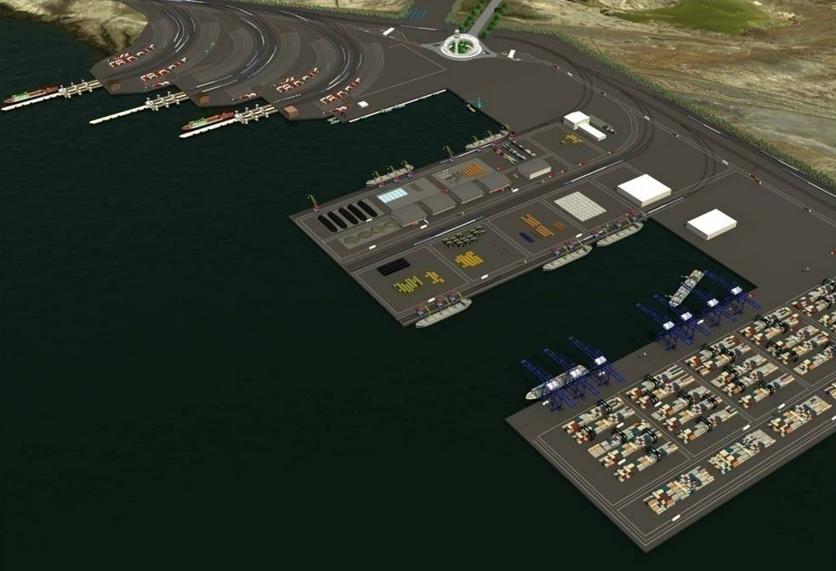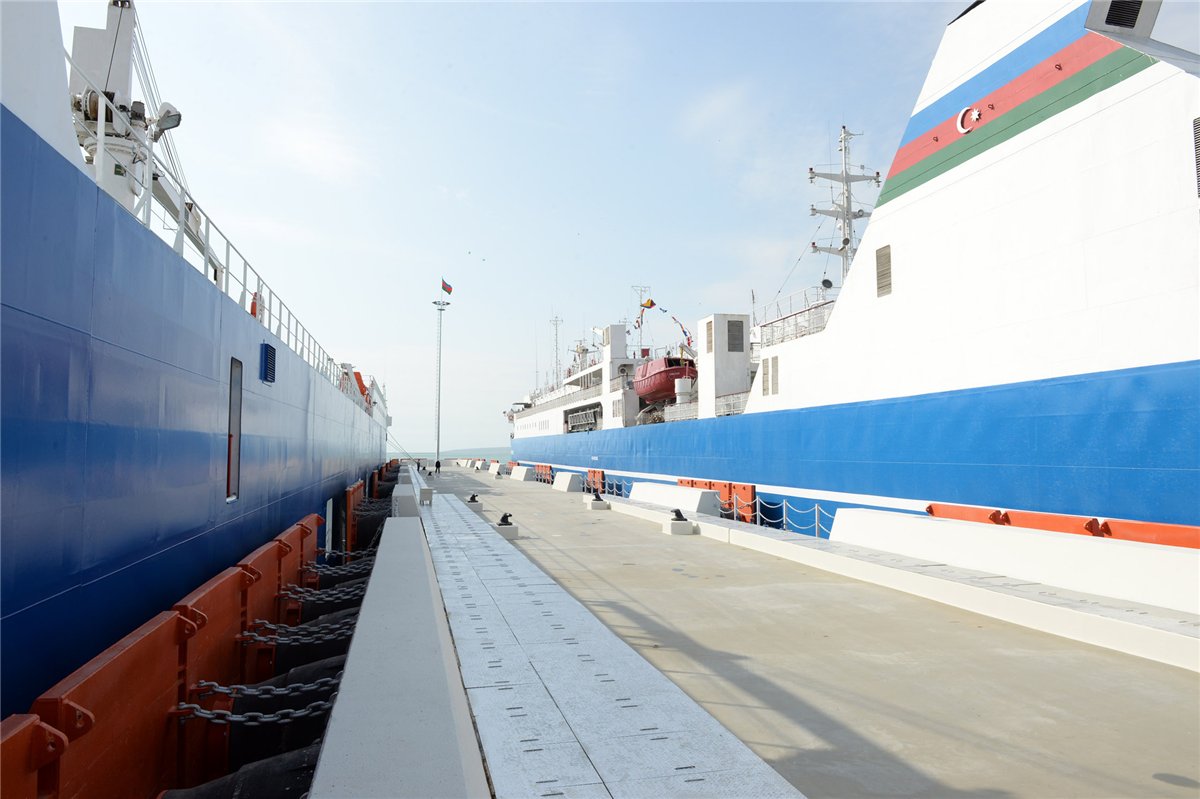The role of Azerbaijan’s transportation and logistics facilities, including the Baku International Sea Trade Port, has come under the spotlight at the International Association of Ports and Harbors (IAHP) conference that was held in Baku earlier this week.
“A new Baku International Sea Trade Port has been built in Alat Free Trade Zone,” Transport, Communications and High Technologies Minister of Azerbaijan Ramin Guluzade said at the conference, according to reporting by Azertag, referring to the seaport constructed along the western shores of the Caspian Sea.
“Due to the great advantages of its location area, the new port will enable Azerbaijan to successfully solve transportation safety issues and turn Baku into a very modern and large transportation and logistics center in the Caspian basin. The new port also creates favorable conditions for expanding cooperation between the Caspian littoral states and the full operation of North-South and East-West transport corridors.”
The Alat free trade zone takes up approximately 400 hectares (ha), just 43 miles south of Baku. Plans are underway to expand the zone to 1,000 ha, and is expected to transform Azerbaijan to the regional transportation and logistics hub that plugs into international trade and shipping corridors. Alat is anticipated to become Baku’s alternative of Jebel Ali Free Zone in Dubai.

The zone’s capabilities include storage, loading and unloading, stripping, un-stuffing, groupage, consolidation, and distribution. Value-added logistics procedures at the zone include repackaging, customizing, assembly, quality control, testing, repair, on-terminal, auto-accessorizing, grain storage and fumigating, newsprint storage, storage of commodities and transfer and in-container garment assembly.
The cumulative impact of Alat is expected to be $57 billion by 2040, into an economy whose annual gross domestic product is already $167 billion. DP World, a company based in the United Arab Emirates, serves as the terminal’s operator, has helped plan for the zone’s expansion.
“A strategic shift has been made to drive Azerbaijan’s economy based on value-added services. One of the main epicenters of this policy will be the Alat Free Trade Zone, part of greater Baku,” Taleh Ziyadov, Director-General of the Baku International Sea Trade Port, said in a welcome message to conference participants on May 9.
“The Alat Township is already the host of the biggest port of the Caspian, the Port of Baku. In a few years from now, it will be able to handle 25 million tons of cargo and 1 million TEU every year. With the development of the Alat Free Trade Zone, various clusters will be developed, varying from traditional petrochemicals and agriculture to advanced high tech parks and biotech, among many others.”
Santiago Garcia Milà, IAPH President, drew parallels between the medieval and modern trading points of Azerbaijan along the Silk Road between East and West, saying, “the Port of Baku continues to play its critical role of a hub port in its contemporary sense.”
Located in the South Caucasus and Caspian regions, Azerbaijan’s potential as a geostrategic location for major air, sea, rail and road routes within Eurasia, including the Trans-Caspian International Transport Route (TITR), the North-South and East-West routes, and the Baku-Tbilisi-Kars (BTK) railway, are only starting to be realized.
The Port of Baku, the largest and most developed seaport within the Caspian basin, fits well to navigate intercontinental trade and transportation routes from a single point. Links between the port and the existing highways and railways within Azerbaijan pave a way for the inland regions of large countries like Kazakhstan and Russia.
The IAPH 2018 conference in Baku, the first of its kind in the Caspian and South Caucasus regions, gathered a record number of 400 officials from international seaports, business communities, maritime and logistics companies of 65 countries, including the U.S., Russia, China, India, Indonesia, Philippines, Japan, Germany, France, Spain and others.







 Russian Foreign Minister Sergei Lavrov has reasserted that Moscow has no intentions to stop the fighting in Ukraine, even if peace talks commence.
Russian Foreign Minister Sergei Lavrov has reasserted that Moscow has no intentions to stop the fighting in Ukraine, even if peace talks commence.
 Iran has refuted reports of alleged damage to Shimon Peres Negev Nuclear Research Centre located southeast of Dimona, Israel, during the recent air...
Iran has refuted reports of alleged damage to Shimon Peres Negev Nuclear Research Centre located southeast of Dimona, Israel, during the recent air...
 Iran’s Foreign Minister, Hossein Amir-Abdollahian, has labeled a foiled Israeli drone attack in certain parts of the country as a "failure" for Isr...
Iran’s Foreign Minister, Hossein Amir-Abdollahian, has labeled a foiled Israeli drone attack in certain parts of the country as a "failure" for Isr...



